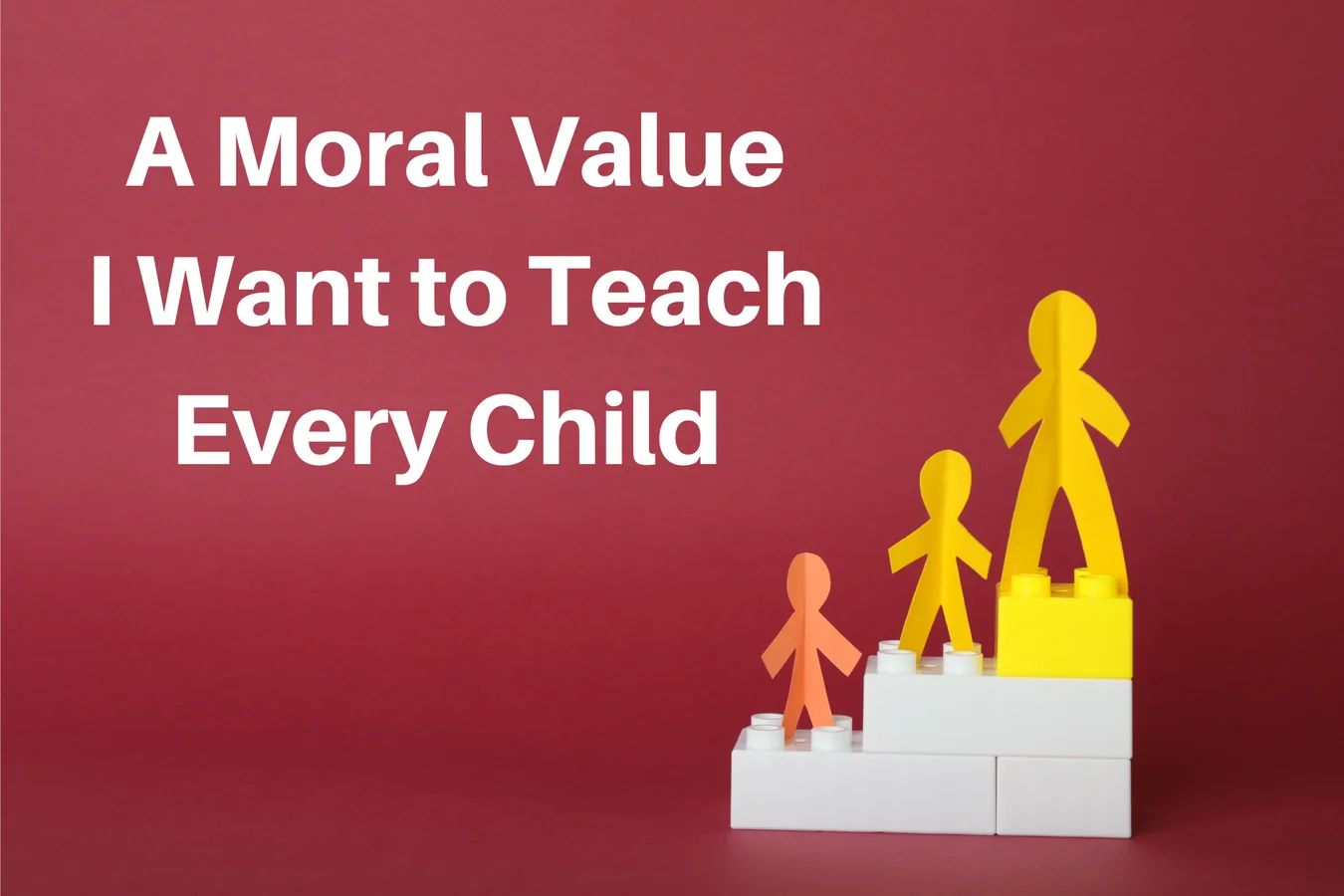A Moral Value I Want to Teach Every Child
5 minuteRead

I learned one of the most valuable lessons of my life at age 8 in a fierce way. You must not think fierce is the right adjective here, but believe me, it is, in this case.
I have a sibling five years younger than me. I have a niece, who is basically the human form of my heart. As with any family member, I adore them dearly. Today, I am going to talk about a value, I very responsibly and with utmost willingness taught both of them.
I was blessed to be born in times when childhood was enjoyed outside the home and not inside. I belong to that generation who experienced the joy of playing games outdoors, playing pranks on the neighbors, and playing Ghar Ghar. Yes, I am a 90s kid (1998-born).
One day during my summer vacation, I was playing the game called Nagoal (90s kids would know) with my friends outside my home. I went inside for a water break from the scorching sun. As a kid, you are often used as a messenger at home, aren't you? Passing the messages from one room to another and upstairs and downstairs.
Source: Wikipedia
We lived in a joint family back then. My aunt was upstairs and our house help just arrived. When the bell rang, my aunt just asked from there who is it, Dimpy? To return to my game quickly, instead of going up, I shouted (since she was upstairs and we had like proper big home to accommodate a joint family) “Kaamvali bai” in my mother tongue - Sindhi, that’s what we speak at home.
By now, this maid had been working with us for some time, so she knew some words of our language. She understood I just shouted “kaamvali bai”. She grabbed me by my hand, looked keenly into my eyes, and in a very serious, partial aggressively, and scary tone said, “I am not a kaamvalibai (In our regional language i.e. Gujarati). Say, Salma ben (her first name) has come. Never use kaamvalibai again ever for me, understood? “. And then, just left my hand, went away doing her work.
At that age, I had no understanding of what just transpired, but it remained vivid in my mind. However, I just began following what she asked me to for her or any other house help or maid or anyone after that day. It just stayed with me very sharply. As an obedient child then, I just obeyed, and to be honest, I was scared as well. Maybe the 8-year-old me was not that brave!
The time when I actually learned the lesson actually that why she said and what she said was four years later. My grandpa made me understand that unknowingly. I was always very close to my grandpa. We used to play, have deep conversations, and talk about the stock market all the time. It was his most favorite topic. Eventually, he made me interested in it too.

One leisurely evening, we were sitting and playing ludo. As a matter of fact, I had just one kitchen duty as a 12-year-old, making tea for my grandpa every evening. So, it was almost his tea time so we took a break from ludo so I can go make his tea. That’s when our house help Kamla ben arrived.
I opened the door and she began her usual home chores. Like any Indian household, my grandpa told me to ask Kamla ben if she would have a cup of tea as well. Now, my grandpa was the first person at home who addressed Kamla ben as Kamla ben and not “Kaamvalibai”. I, instantly out of curiosity asked him, why did you say Kamlaben just like me? Nobody casually calls her that except me.
My Grandpa just told me something so wonderful, that I will never ever forget. He said, “Isn’t that just the most human and primary way of addressing anyone? By their first name and a pinch of respect by saying bhai or ben since we understand mankind?” I was like yes, but why is it not common was my question to his response.
He explained to me how our professions become our identities. We call everyone like that right? A doctor – a doctor, a nurse – a nurse, a sweeper – a sweeper, a driver – a driver. We may perform any role or pursue any profession but our primary identity shall always be a human. Then let’s just call each other by our human names!
Eventually growing up, I realized more and more how respect can be a primary need for any human just like food, clothing, and shelter. It is that basic. It is that simple.
We live in a society where professions are classified as dignified and not dignified somehow. And it is so deep-rooted that maybe it is no more possible to remove those categories and make people understand that work is work. A profession can be less prestigious or more prestigious. It is not right to associate anybody’s work or profession with their status. Because what we all do for a living i.e. our profession is an outcome of multiple factors. Some of these factors are in our control, but certainly not all.
I did realize then why Salmaben got so angry when I addressed her as a kaamvali bai. She felt bad because the work of house help is not considered dignified and prestigious in our society.
I think the only thing we can all unanimously do here is to treat every human we address with their first names and add Mr/Miss/Jii/Bhai/Behen/Dada/Tayi and many other words like these that are popular in our vernacular languages in India to offer respect.
No offense to people that have worked hard and added great accolades to their names. You do deserve a big applause for all your hard work and achievements. Big Congratulations. But there is no achievement greater than being a kind human and there is no greater duty than treating all with respect. Humanity has become a virtue in today's world.
This is a value I have taught my younger sibling and niece with utmost sincerity. And it is the value I will teach any children I am ever privileged to teach.
Write, Record and Answer! Consume Unlimited Content! All you need to do is sign in and its absolutely free!
Continue with one click!!By signing up, you agree to our Terms and Conditions and Privacy Policy.










